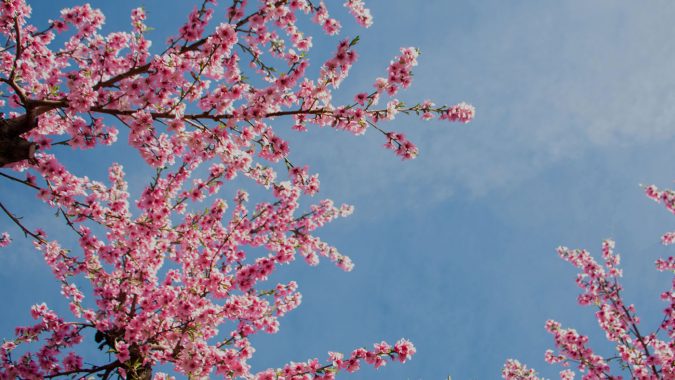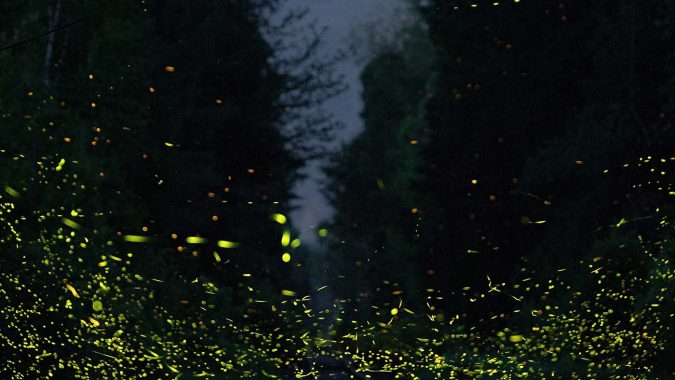
According to Buddhism, all beings possess an intrinsically pure and changeless Buddha Nature, which is momentarily obscured by incidental stains or negativities of mind that are called kleshas (singular: kleśa). The Sanskrit term kleshas is also translated as afflictions, impurities, defilements, obscurations, negative emotions, mind poisons, obstructions, destructive or disturbing emotions, and so on. Once these are removed, the inherent Buddha Nature can emerge and all beings can achieve enlightenment.
Kleshas arise from a ground of ignorance – which includes the faulty perception and conception of phenomena as real (existing) and separate from “a self,” attachment to an illusory “self” and favouring it above (a misinterpreted idea of) “others,” and attempts to validate a consistently insufficient feeling of “self.” If not recognized and pacified, kleshas manifest in unwholesome mental activities that lead to negative action and accumulate karma, thus keeping us trapped in Samsara, the suffering-laden and endless cycle of birth, death and rebirth. The impact of such erroneous thinking is vast:
An ignorant thought can easily lead to worries and afflictions. Such worries and afflictions may seem tiny and subtle at first, but they can accumulate like specks of sand growing into a desert, and obscure our innate pure nature. When our innate nature, which in its original state is as bright and clear as a mirror, becomes obscured by mundane worries, then it won’t be able to reflect the truths of the world for us to see, and it will be unable to guide us onto the right path in life.
Dharma Master Cheng Yen
There are five principal kleshas that need uprooting, which are called the five poisons (Sanskrit: pañca kleśaviṣa) or five unwholesome roots. The first three (ignorance, attachment and aversion) are also referred to as the three poisons (Sanskrit: triviṣa), and are considered to be the source of all kleshas. The five poisons are:
- Ignorance (Sanskrit: avidyā) – or confusion, bewilderment, delusion.
- Attachment (Sanskrit: raga) – or greed, desire, passion.
- Aversion (Sanskrit: dvesha) – or anger, aggression, hatred.
- Pride (Sanskrit: māna) – or arrogance, conceit. (Root: ignorance and attachment).
- Jealousy (Sanskrit: irshya) – or envy. (Root: attachment and aversion).
Buddhist teachings indicate that it takes a very long time to completely eradicate the kleshas, as Dharma Master Cheng Yen explains:
It isn’t easy to return to a pure mind, for our afflictions have become very entrenched. Since beginningless time, we’ve been engaging in wrong actions that reinforce our greed and afflictions and cause them to grow, the impurities in our mind building up. We say “beginningless time” because this duration is so long that it’s incalculable. It’s also hard to say when it began because for each person the starting point was different, and each of us has different afflictions.
While we don’t know when we began accumulating afflictions, we now have the opportunity to stop this pattern. We can do this by repenting from the bottom of our hearts. It isn’t only the obvious wrongs that we must repent for; we also need to repent for even very subtle wrongs, such as the arising of an unwholesome thought.
We interact with people every day and must be very mindful of our manner, attitude, tone of voice, gestures and actions. When on the receiving end of others’ manner, attitude, tone of voice, etc., the practice is to keep a positive mind and a heart of simple goodness. With such a heart and mind, we’ll interpret things in a wholesome way and won’t jump to conclusions or perceive things negatively, then react accordingly. We must be mindful in every second of every day.
Vigilant mindfulness in every moment is of central importance, as is not nursing our afflicted reactions and allowing them to become a destructive habit.
When we’re dealing with people and matters, sometimes we get frustrated and mad. We then hold onto our anger and frustration and continue to feel it, unable to get rid of it. Gradually this feeling develops into a knot in our heart and becomes a spiritual illness. Even if we don’t display our feelings outwardly to those we’re mad at, our resentment will be transformed into a seed in our consciousness and when we encounter the same people in a future life, we’ll naturally dislike them and likely form bad karma and bad affinities with them again, thus perpetuating a vicious cycle.
Since the goal of cultivation is to get rid of afflictions, we should get rid of them completely by letting go of anger and resentment after a troubling experience is over. If we can keep our heart pure and broad, we’ll be sure that we’re planting a seed of purity in our consciousness, not a seed of anger and resentment for our future life.
Master Cheng Yen offers these powerful words of inspiration to guide us on the path of clearing the obscurations that block our Buddha Nature from shining forth:
“It’s easier to see a smudge on other people’s faces than it is to see a smudge on our own. Likewise, it’s easier to detect others’ wrongs than our own. I hope everyone can turn a mirror on themselves and wipe away the dirt they see. Remember that when an evil thought arises, one’s life can be plunged into darkness; similarly, when a good thought surfaces, light can be restored. In the same way that the stars light up the sky, there is also light in each of our hearts; like the stars in the sky, the light in our hearts can also bring a sense of peace and harmony to a long, dark night. However, this light – the crystal-clear, bright, innate Buddha Nature – is often obscured by impurities, allowing ignorance to grow unchecked. It’s a long and arduous journey to cleanse such impurities from our hearts. But as long as we have the innocence of a child, the endurance of a camel, and the courage of a lion, we’ll be able to return to our innate wisdom, which is commensurate with that possessed by the Buddha.”
The sections in quotations are excerpts of material written by Master Cheng Yen and translated by Teresa Chang. The other sections in italics consist of edited excerpts of material compiled into English by the Jing Si Abode English Editorial Team, based on Master Cheng Yen’s talks.
































